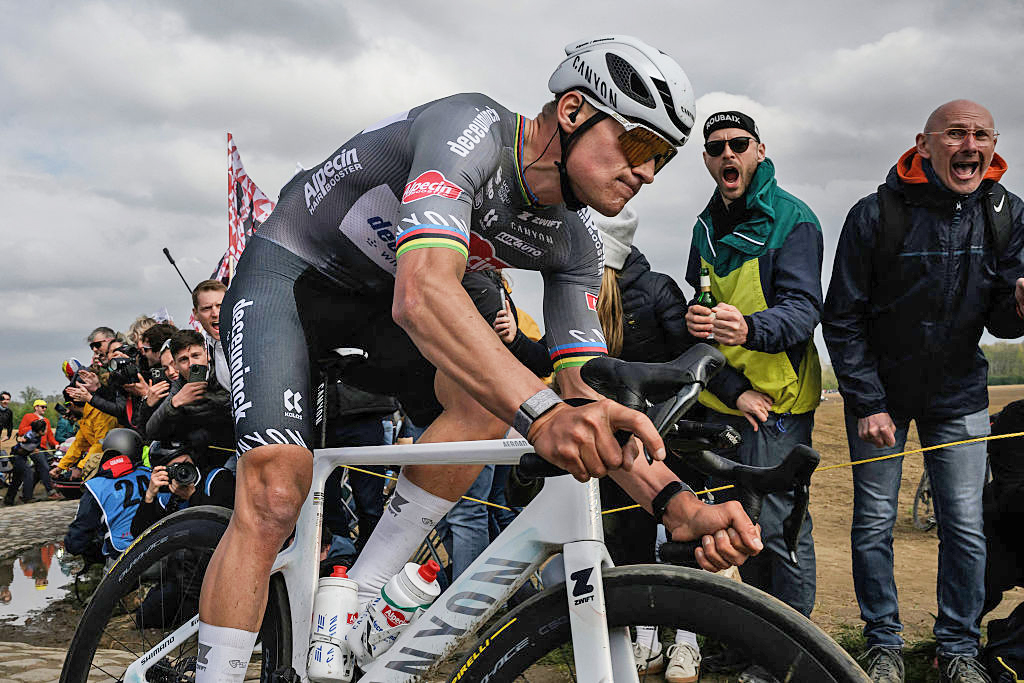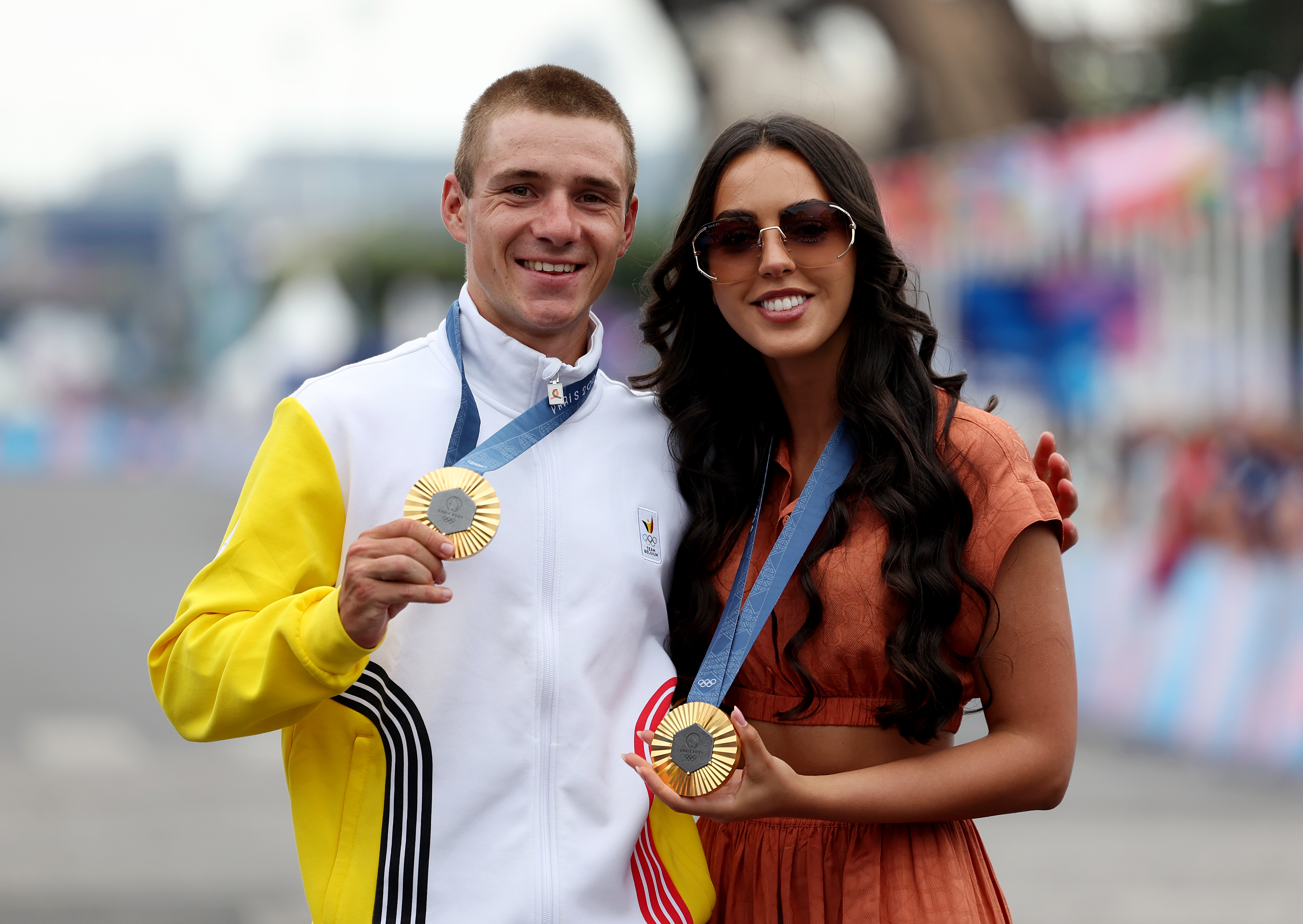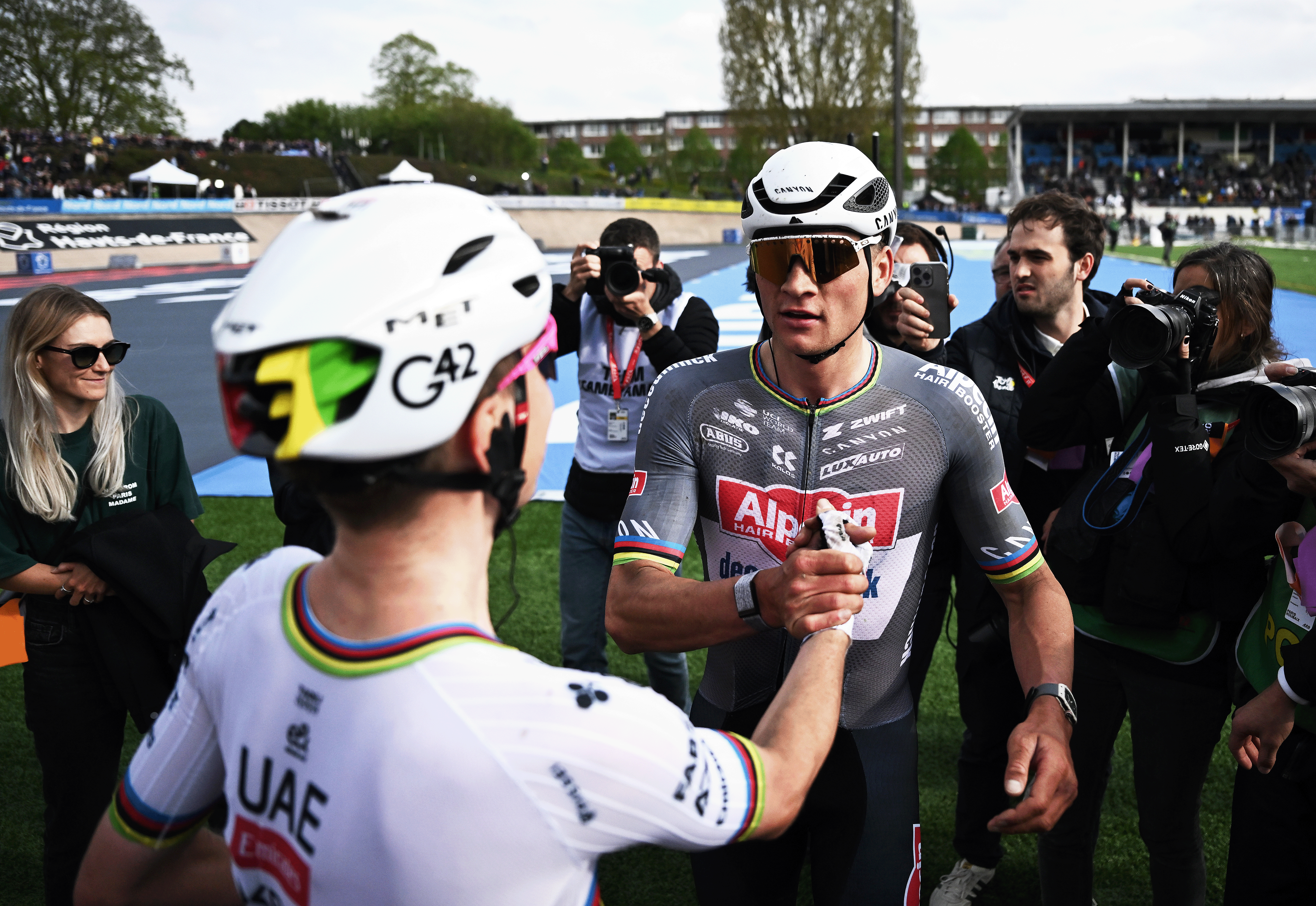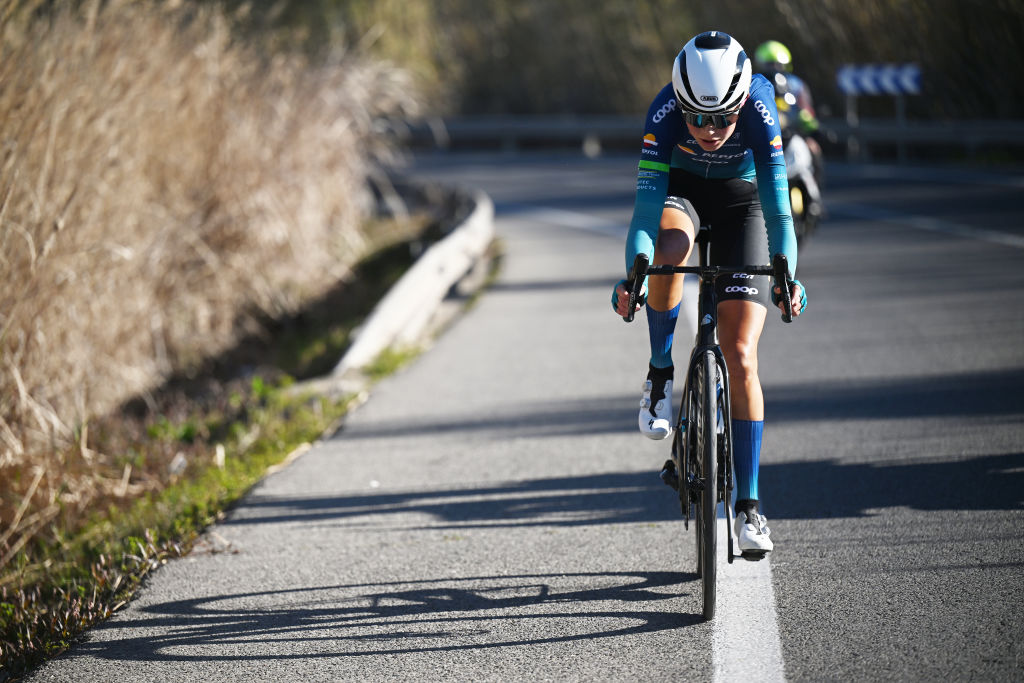UCI Road World Championships 2021: The Essential Preview
An in-depth guide to the rainbow jersey races in Flanders

The UCI Road World Championships return to one of cycling’s most ingrained and storied heartlands for its 2021 edition: Flanders. That word alone should be enough to raise goosebumps as excitement builds ahead of the battles for the 11 iconic rainbow jerseys up for grabs across the eight-day festival of racing.
Belgium is a country that lives and breathes cycling, but nowhere is this two-wheeled pursuit taken more seriously, or its pedallers more revered, than in the Dutch-speaking north of the country. It’s going to be a party, and, despite the ongoing effects of the pandemic, a well-attended one at that. The fact that Belgium have the outstanding favourite for the elite men’s road race in Wout van Aert, a serious contender for the women’s race in Lotte Kopecky, plus a host of candidates across the time trials and the junior and U23 events, will keep the anticipation and atmosphere high throughout.
This is the 10th time Belgium has hosted the World Championships, and the seventh time in Flanders. The first was in Moorslede in 1950, on a circuit that included the Kemmelberg which plays such an important role in Gent-Wevelgem. Briek Schotte hammered away for a solo victory that year, while Rik Van Steenbergen was victorious when the event was held in Waregem, using the finish of the modern-day Dwars door Vlaanderen, seven years later. There were no women’s events at that point, but the legendary Yvonne Reynders was there to claim her third rainbow jersey in Ronse in 1963, with Benoni Beheyt making it a Belgian double.
The Worlds has since returned to Flanders in Zolder in 1969 and Ronse in 1988, with the last visit coming in 2002, again in Zolder, where Mario Cipollini and Susanne Ljungskog claimed the elite road race titles.
The fact that the Flanders region as a whole, rather than one particular city, is listed as the host of the 2021 Worlds, perhaps leads the imagination towards the cobbles and climbs of the region’s most historic and emblematic event: the Ronde van Vlaanderen – or Tour of Flanders. However, the true Flemish Ardennes do not feature on the 2021 Worlds agenda. Instead, the time trials take place up on the flatter windswept terrain near the North Sea coast, while the road races largely unfold down south near the border with French-speaking Wallonia.
That’s not to say the racing won’t be distinctly Flemish-flavoured, nor anything other than gripping. There are cobblestones, there are punchy climbs, and there are rainbow jerseys up for grabs. If we’re looking for comparisons, the road races bear much resemblance to Brabantse Pijl, which acts as a sort of bridge between the Flemish and Walloon Classics each spring. The routes feature a number of the same climbs, including the visually striking S-bend in Overijse and the steep cobbled ascent of Moskesstraat.
It all seems set up for a pure test of a bike racer’s all-around ability – we shouldn’t expect anything less from Belgium and Flanders.
The road races
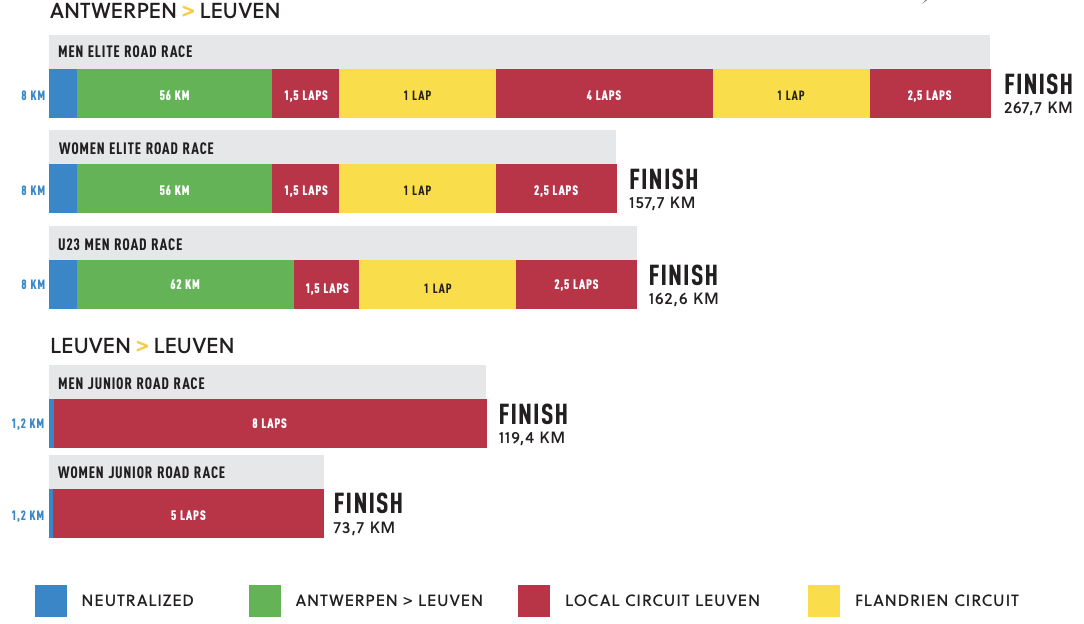
As ever, the road races are based on a circuit although this year we have two. They start up in the major industrial port city of Antwerp, where the Tour of Flanders has started for the past few years, before the opening 50km take them in a straight line down to the finish town of Leuven.
The main circuit is a 15km loop around Leuven characterised by punchy, twisting city-centre streets. There are four short categorised climbs and at least 20 tight corners to be negotiated. The other circuit is dubbed the ‘Flandrien loop’, nearly 50km in length and taking the riders out towards the bigger climbs. It tackles six in total, starting with the Smeysberg, then hitting the Moskestraat and the S-bend in Overijse. After the Bekestraat, it’s the Veeweide and the Smeysberg again before a flatter path back towards the Leuven circuit.
While the junior categories will eschew the Flandrien loop and stick to the Leuven circuit, the elite men and women, plus the U23 men, will all do various combinations of both.
The elite men’s road race, somewhat confusingly, features a lap of the Leuven loop, then a lap of the Flandrien loop, then four laps of the Leuven loop, another Flandrien loop and, finally, another two-and-a-half laps of the Leuven loop. After the opening jaunt down from Antwerp, it all adds up to 268.3 kilometres, with an accrued elevation gain of 2,562 metres.
The elite women’s road race features just one lap of the Flandrien circuit. They’ll similarly do a lap of the smaller circuit on entry to Leuven before heading out of town, but when they return, there will be just two-and-a-half laps of the Leuven circuit before the final throws for the line. In total, the race is 157.7km long with just over 1,000 metres of elevation.
The U23 men will do the same combination of circuits, albeit with a slightly modified approach to Leuven to bring the total distance up to 160.9km. There is no U23 category for the women.
The junior races are confined entirely to the Leuven circuit, with the men covering eight laps for a distance of 121km and the women doing five laps for a distance of 75km.
The finish lines are located on Geldenaaksevest, a wide main road but one that has a slight false flat, ensuring a grind to the last.
The time trials
Whereas the road races largely unfold in the south of Flanders, close to the Wallonia border, the time trials take place up north. They all start in Knokke-Heist, up on the North Sea coast by the Dutch border, and finish in the centre of the historic city of Bruges.
The courses aren’t overly technical and are largely flat, which should make for a pure test of time trialling ability. One complicating factor, however, could be the wind that is known to blow up near that coast.
The elite men will cover 43.3km, with 78 metres of elevation gain, while the women will plot a more direct route between the host cities for a distance of 30.3km and an elevation gain of 54 metres.
Both the elite courses start out with 1500 metres heading east along the coast before heading south for 10km, and they both finish with a largely straight run from Damme south west into Bruges. Where they differ is in the middle. At the 17-kilometre mark, the men branch off at Dudzele to head south, touching the outskirts of Bruges, before heading back up on an adjacent road to rejoin the course again in Dudzele, by which point they’ll have 29km on the clock.
The U23 men will do the same course as the elite women, while the juniors will skip the mid-race twists and turns on a more straight-line run to Bruges, totalling 22.3km for the men and 19.3km for the women.
2021 also sees the return of the mixed relay team time trial event, which was first introduced in 2019 but was shelved during the hastily rearranged mid-pandemic 2020 Worlds in Italy. The format sees men and women compete in the same event, essentially seeing two back-to-back team time trials and a team’s time taken as a total of both. In Flanders, a men’s trio will race down 22.5km from Knokke-Heist to Bruges, where they’ll tag in a women’s trio, who’ll do a 22km loop up to Damme and back to Bruges. The event was won by the Netherlands in 2019 and while it lacks the prestige of the other events at this point, it is widely considered a step towards improved gender parity and an entertaining addition to the schedule.
The contenders
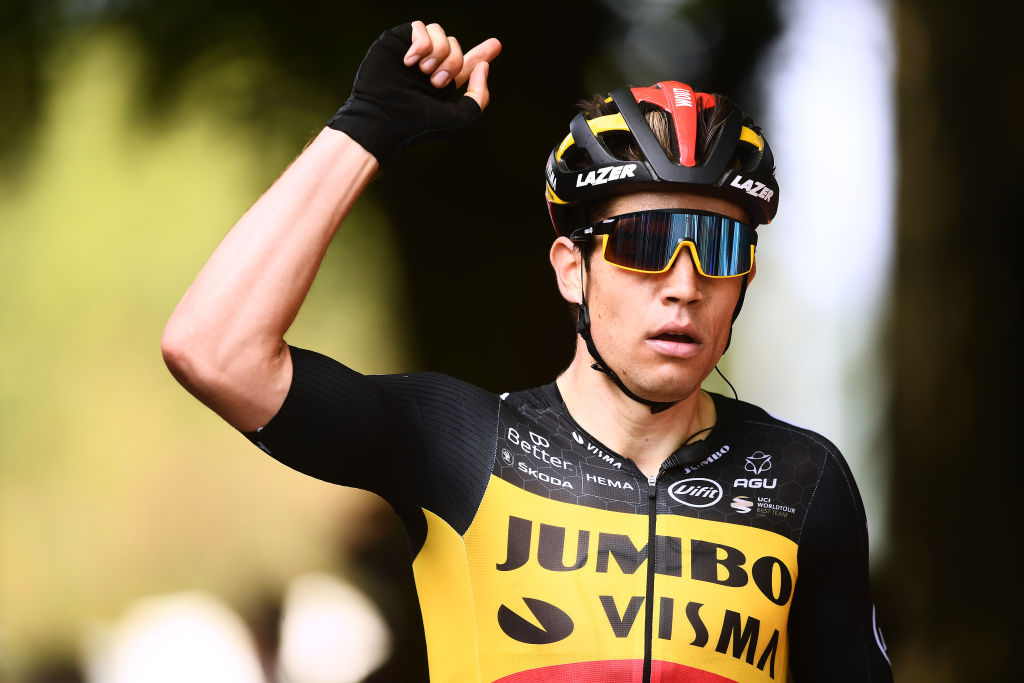
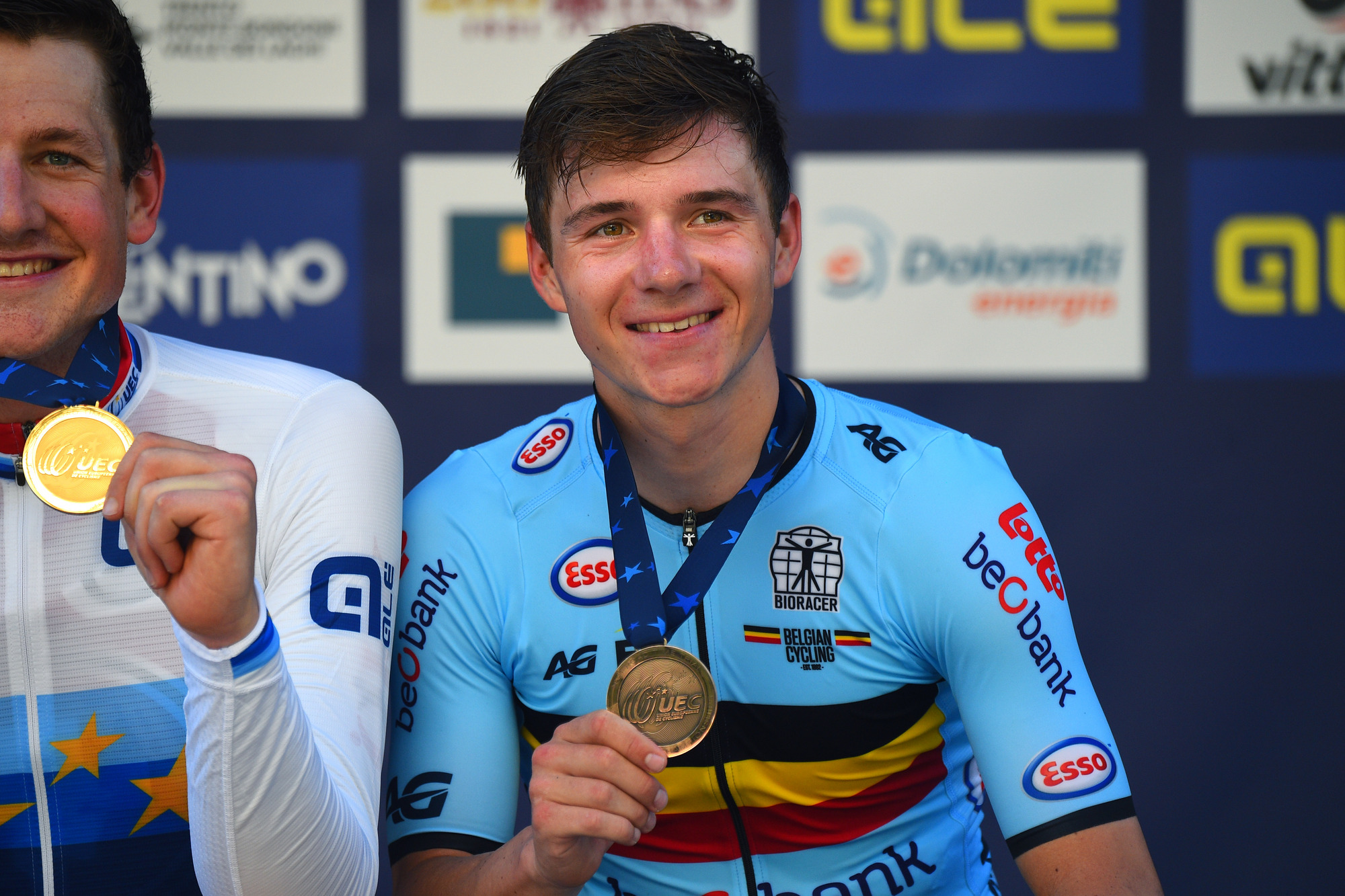
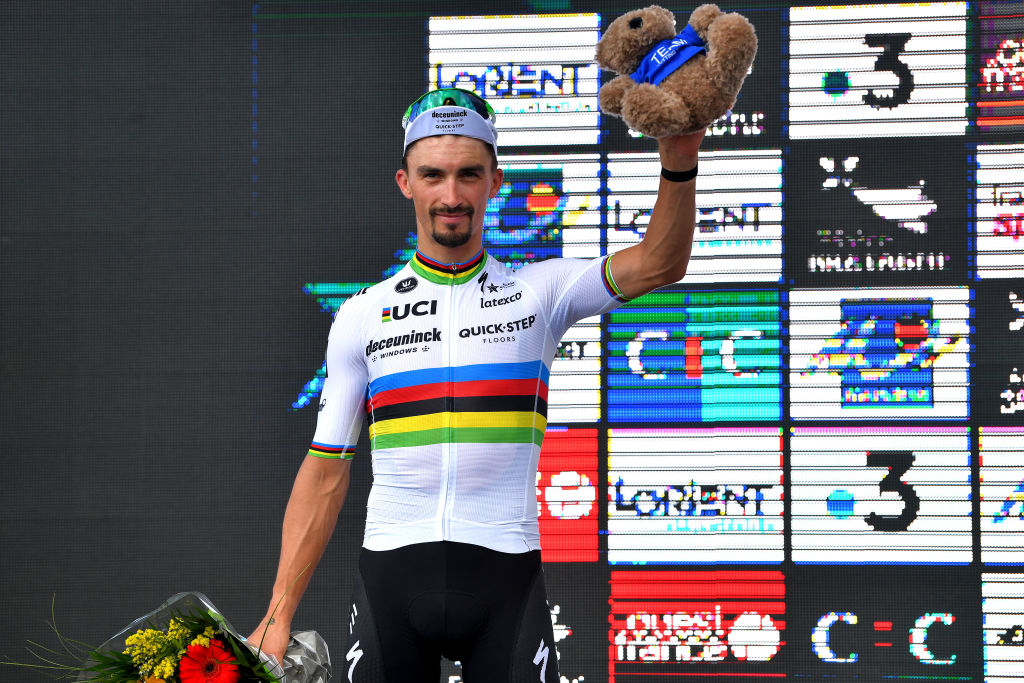
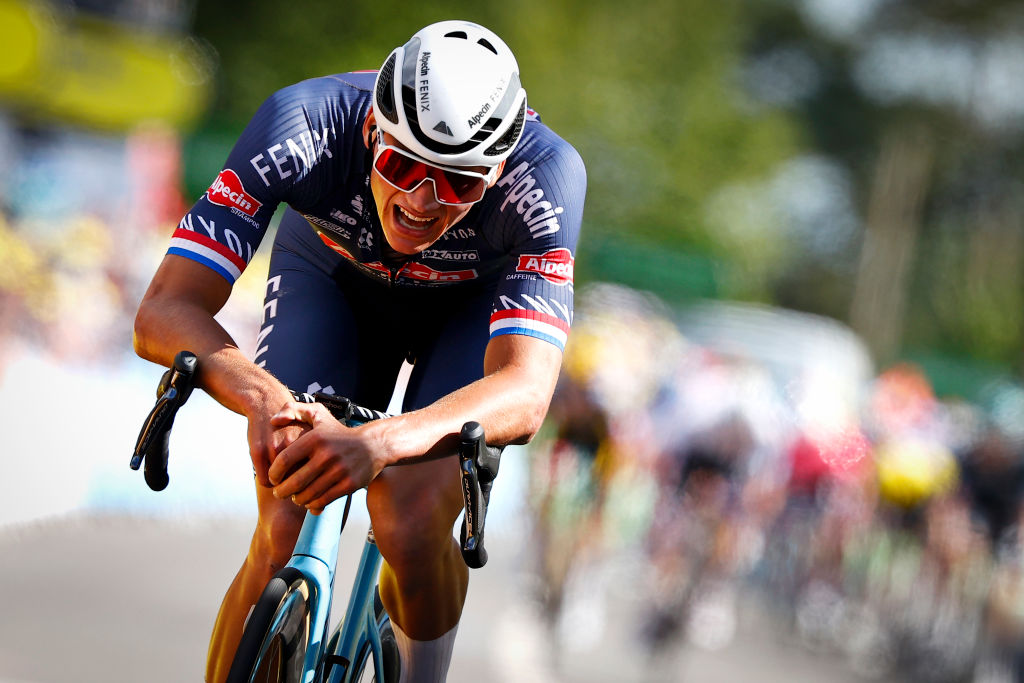
The elite men’s road race features one heavy favourite in the form of Wout van Aert, whose three stage wins at the Tour de France – one in a time trial, one in a bunch sprint, and one on a high-mountain stage – showcased his breathtaking level of versatility. Put simply, you’d be hard pressed to design a course that didn’t suit the 26-year-old. If that didn’t strike enough fear into his rivals, how about his form? He comes in on the back of four stage wins and the overall title at the Tour of Britain. It was not the deepest of fields, but delivers a resounding statement of intent nonetheless.
If there’s one weakness in Van Aert’s armour it is perhaps tactical and collective. At the Olympics he was isolated, heavily marked and ultimately powerless to control a chaotic finale in which Richard Carapaz (Ecuador) slipped clear for gold. The difference here, however, is that Belgium have a bigger team with more riders capable of making the finale on this parcours and the real key may lie with Remco Evenepoel. He was below his best at the Olympics and was criticised for essentially taking himself out of the game with an early attack, but now he’s back to somewhere approaching full strength. Perhaps aware of that criticism, he has overtly committed himself to the Van Aert cause and while his presence should take some of the pressure off the national champion, Evenepoel himself does still represent an alternate path to glory for the host nation. As he has shown a few times in recent weeks, he can win with long solos, so it’ll be interesting to see how exactly he is deployed.
Beyond Belgium, there’s no greater status than being the current world champion. Julian Alaphilippe (France) has had a solid, if unspectacular, year in the rainbow bands and although he was third overall at the Tour of Britain he was a notch below Van Aert and even beaten on his favoured super-steep gradients of the Great Orme finish. The stardust may have worn off a little but he remains a rider for the big occasion, as his win in Imola 12 months ago – after a largely subdued Tour de France – proved.
At the time of writing, Mathieu van der Poel (Netherlands) is unsure of his participation due to a lingering back injury. Given he’d ordinarily be considered a five-star favourite, question marks over his form and chances will dominate the pre-race build-up, should he indeed put his name down.
Beyond those riders who operate in the realms of superstardom, Sonny Colbrelli has arguably made himself the next most fancied rider with his European Championships victory and more generally with the best season of his career to date. The Italian has markedly improved his climbing, still has that fast finish and will spearhead Italy’s approach. Slovenia have Tour de France champion Tadej Pogačar, Vuelta a España champion Primož Roglič, and dark horse Matej Mohorič, while Denmark have an exciting trio of their own in in 2019 world champion Mads Pedersen, Tour of Flanders champion Kasper Asgreen and triple Vuelta stage winner Magnus Cort. Elsewhere pedigree abounds throughout the field with the likes of Peter Sagan (Slovakia), Michal Kwiatkowski (Poland), Tom Pidcock (Great Britain), Michael Matthews (Australia), and more.
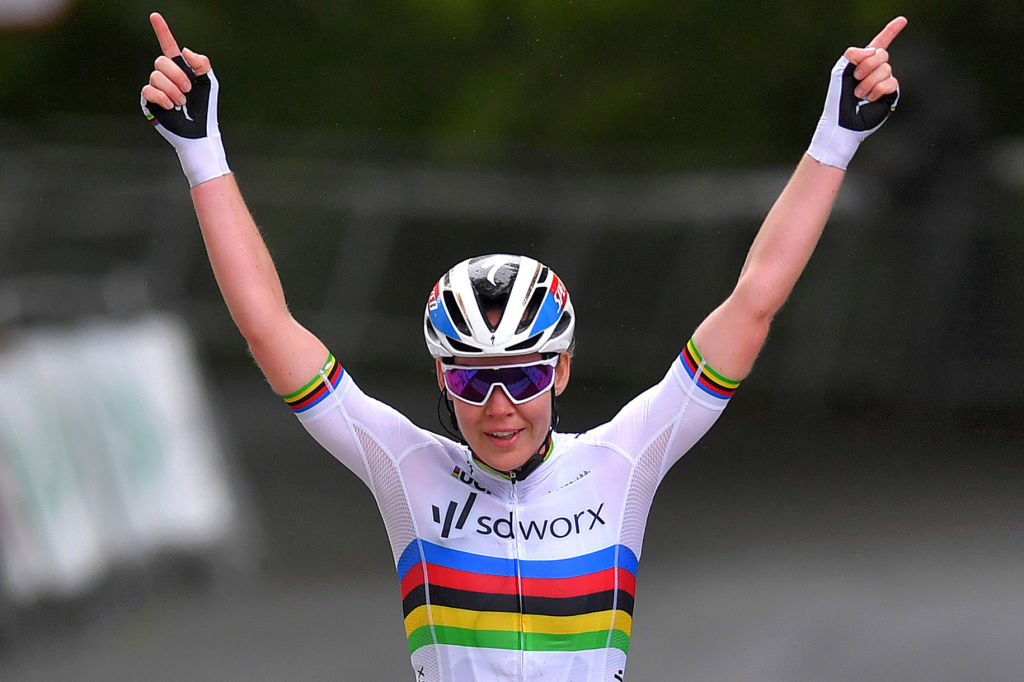
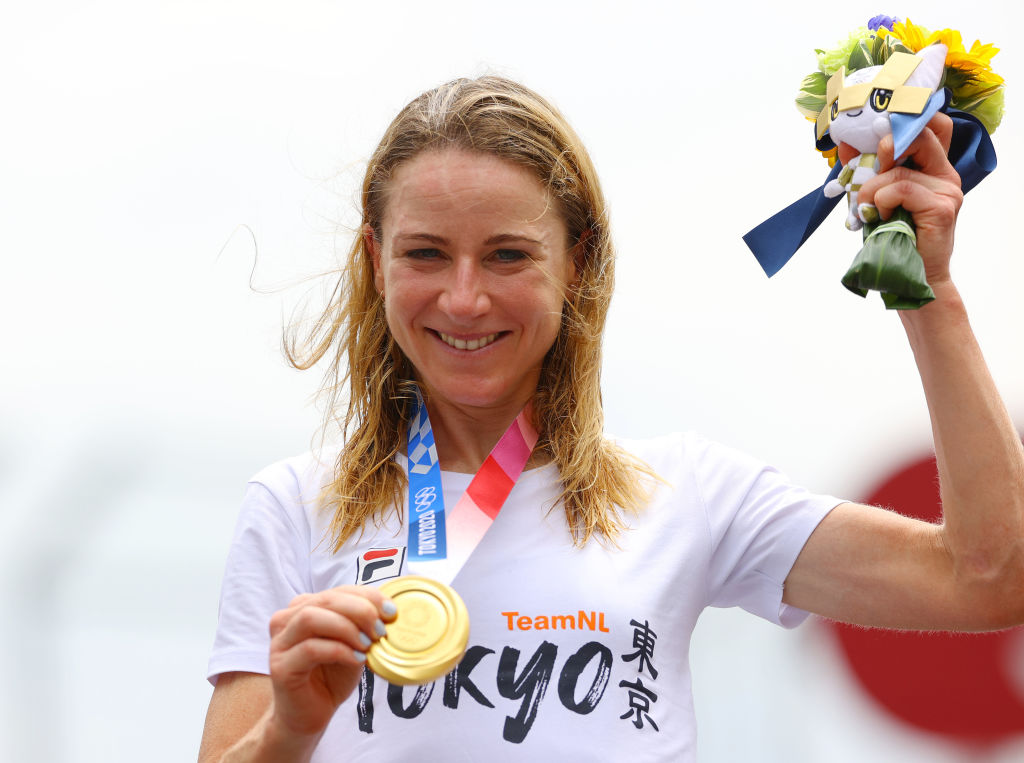
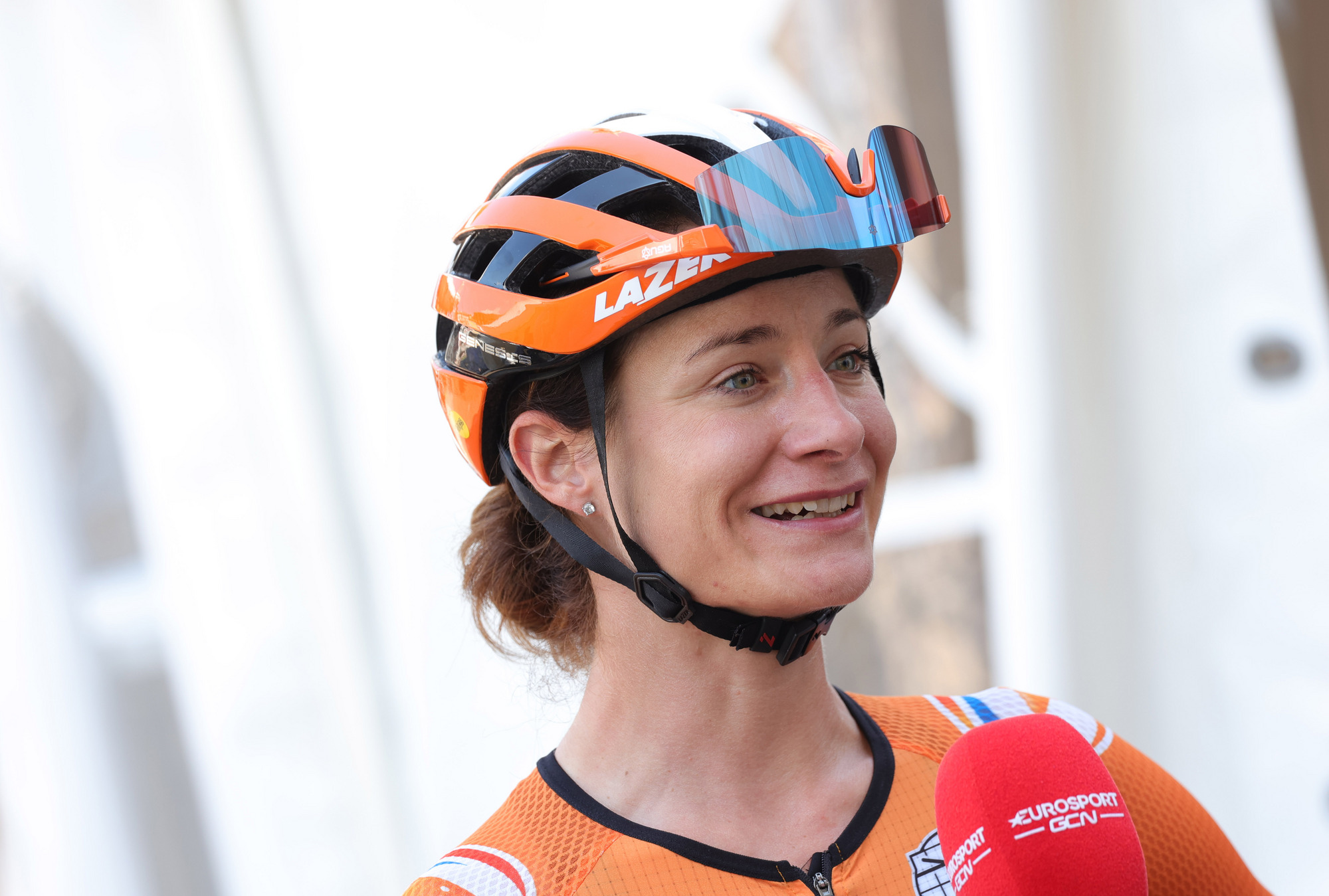
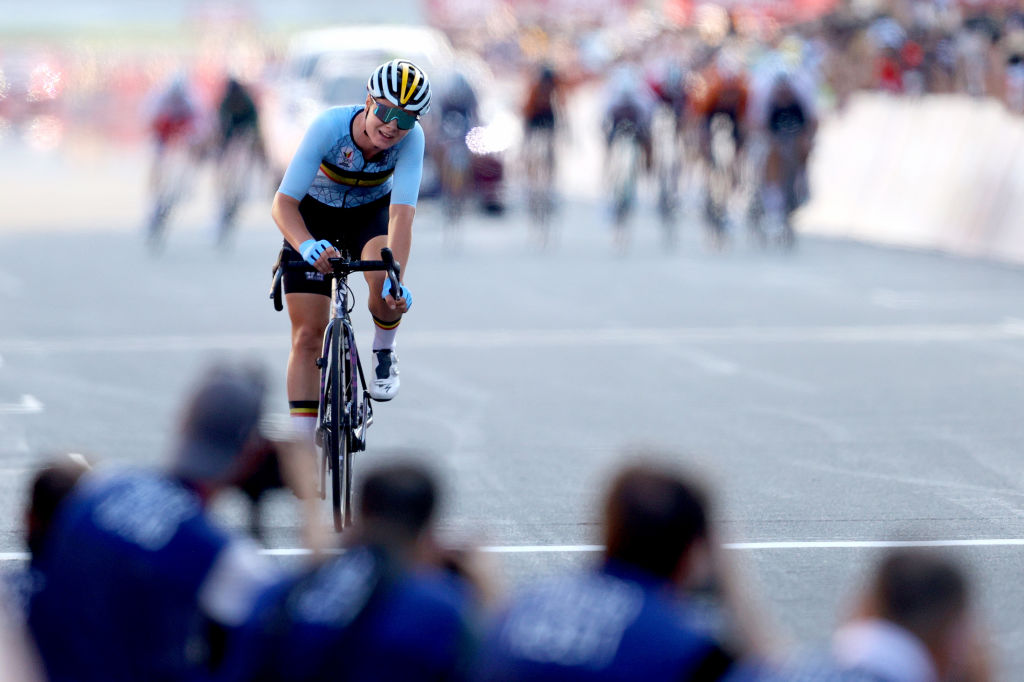
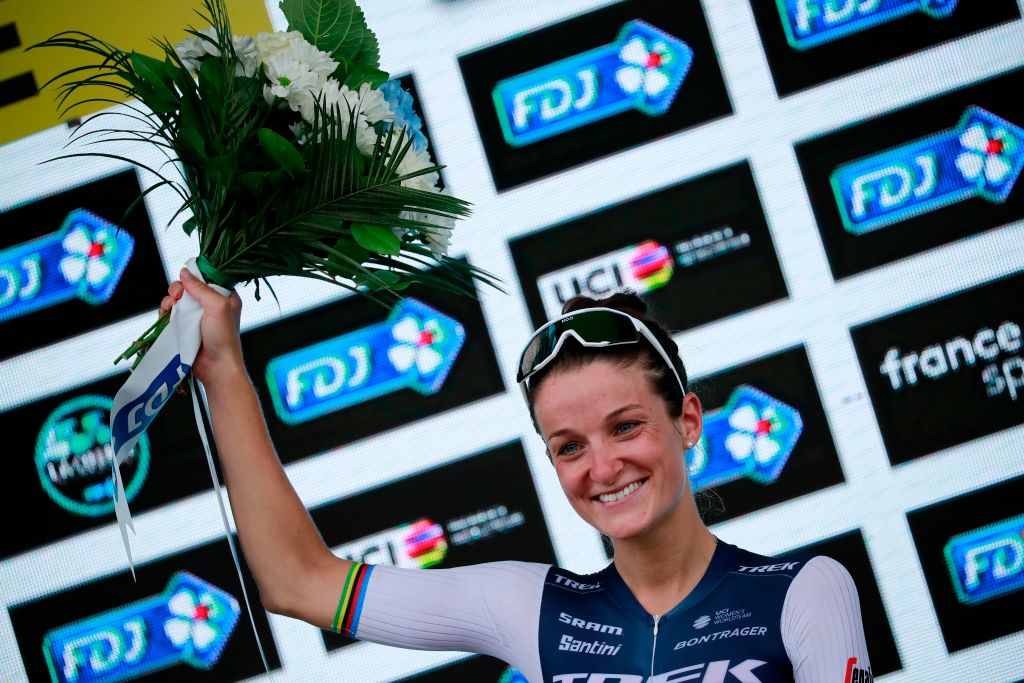
As for the elite women’s road race, the path to the rainbow once again runs through the orange of the Dutch team. They have won the past four editions, with Anna van der Breggen, Annemiek van Vleuten, and Chantal van den Broeck-Blaak, and they also have a three-time winner in Marianne Vos.
Van der Breggen is retiring at the end of the year so a victory for her would deprive the peloton of the rainbow jersey next year, although she has been struggling for form of late and so there are considerable doubts, while Van Vleuten has put together a strong run of form since the summer. While Van Vleuten would likely look to go long, the best bet could be Vos, given her fast finish and win at this year’s Amstel Gold Race. However, don’t forget Demi Vollering, a rider in a similar mould who has had a breakthrough season with victory at LIège-Bastogne-Liège. The Dutch, then have a key to every door but must make sure they don’t walk into the frames. They went into the Olympics road race – which also doesn’t allow for race radios – in a similar position and that ended in shambles, with a near total breakdown in communication and understanding of what was happening in the race.
Beyond the Dutch, there’s another home favourite on the women’s side in the form of Lotte Kopecky. The Belgian champion has been going from strength to strength with 11 wins this year and confirmed with fourth place in Tokyo that she has the climbing ability to allow her to use her fast finish on the toughest courses.
Italy’s national champion Elisa Longo Borghini might have to sneak off from range but she’s done that already this year, while Kasia Niewiadoma (Poland) is a former Amstel winner who’ll look to attack on the climbs. Elsewhere, the USA are led by Ruth Winder and Coryn Rivera, Australia by Chloe Hosking, and Great Britain by 2015 champion Lizzie Deignan.
As for the time trials, the European Championships provided a useful indicator. Stefan Küng (Switzerland) came out on top in the elite men’s event and will be full of confidence after beating the more fancied Filippo Ganna (Italy) and Remco Evenepoel (Belgium). The longer distance will favour Evenepoel over Ganna but the young Belgian arguably needs more elevation to come out on top, while Van Aert is also doing the time trial and is a realistic gold medal prospect.
Olympic champion Roglič looks set to skip the event, while 2017 champion Tom Dumoulin (Netherlands) is out injured and two-time winner Rohan Dennis’ Australia haven’t indicated that they are taking part. That leaves Pogačar to lead Slovenia, while the other medal hopefuls include Rémi Cavagna (France), Stefan Bissegger (Switzerland), and Kasper Asgreen (Denmark).
In the elite women’s time trial, the Dutch once again have options in Van der Breggen, who won last year, and Van Vleuten, who won in 2017 and 2018. There’s also 2013 world champion Ellen van Dijk, who won the European road race title at the weekend and will be tough to beat on a flat course. Van Dijk was the only rider in the European time trial to get anywhere remotely close to Marlen Reusser (Switzerland), who is rapidly rising through the ranks and will start as one of the top favourites.
There’s no Chloe Dygert (USA), who won the 2019 title but is still not back to full fitness after her crash in the 2020 event, while the outsiders for a medal include Germany’s Lisa Brennauer and Lisa Klein.
Sunday, September 19
Men Elite Individual Time Trial
Knokke-Heist - Bruges, 43.3km / 14:30 - 16:55
Monday, September 20
Men U23 Individual Time Trial
Knokke-Heist - Bruges / 30.3km / 10:40-12:50
Women Elite Individual Time Trial
Knokke-Heist - Bruges / 30.3km / 14:40-16:40
Live coverage on Cyclingnews
Tuesday, September 21
Women Juniors Individual Time Trial
Knokke-Heist - Bruges / 19.3km / 10:30-12:20
Men Juniors Individual Time Trial
Knokke-Heist - Bruges / 22.3km / 14:55-17:05
Wednesday, September 22
Team Time Trial Mixed Relay
Knokke-Heist - Bruges / 44.5km / 13:45-16:45
Live coverage on Cyclingnews
Friday, September 24
Men Juniors Road Race
Leuven-Leuven / 121km / 08:15-11:15
Men U23 Road Race
Antwerp - Leuven / 160.9km / 13:25-17:40
Live coverage on Cyclingnews
Saturday, September 25
Women Juniors Road Race
Antwerp - Leuven / 75km / 08:15-10:15
Women Elite Road Race
Antwerp - Leuven / 157.7km / 12:20-16:45
Live coverage on Cyclingnews
Sunday, September 26
Men Elite Road Race
Antwerp - Leuven / 268.3km / 10:25-17:00
Live coverage on Cyclingnews
Get The Leadout Newsletter
The latest race content, interviews, features, reviews and expert buying guides, direct to your inbox!
Patrick is a freelance sports writer and editor. He’s an NCTJ-accredited journalist with a bachelor’s degree in modern languages (French and Spanish). Patrick worked full-time at Cyclingnews for eight years between 2015 and 2023, latterly as Deputy Editor.
Latest on Cyclingnews
-
UCI, Alpecin-Deceuninck to pursue bidon thrower 'so that such behaviour is severely punished'
Mathieu van der Poel's team: 'misbehaviour of a few individuals can have far-reaching consequences' -
'Without you, I would probably have stopped my career' – Remco Evenepoel thanks wife Oumi in emotional post ahead of return from 'dark period'
Olympic champion primed for first race since October at Friday's Brabantse Pijl after 'the hardest battle of my life so far' -
What's next for Paris-Roubaix's protagonists? – Van der Poel ends Classics campaign as Pogačar heads to favoured terrain in the Ardennes
Dutchman and world champion not set to face off again until Tour de France in July after historic trio of one-day duels -
Sigrid Haugset finished Paris-Roubaix with fractured hip after crash with 60km to go
'When you’re in a race, you want to finish' says Norwegian after riding 59km, including 18km of cobbles, with injury

